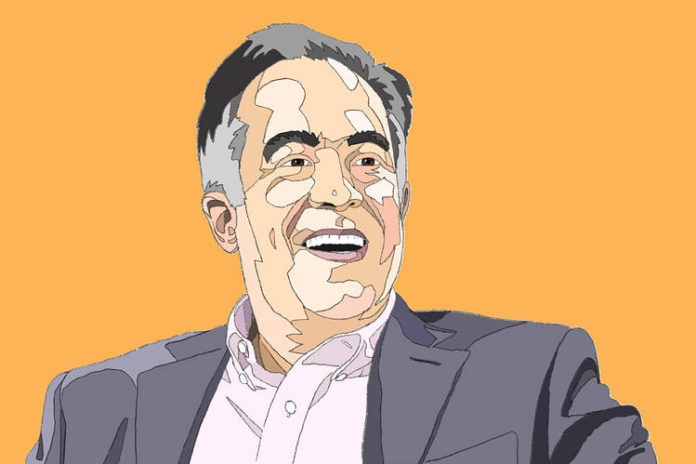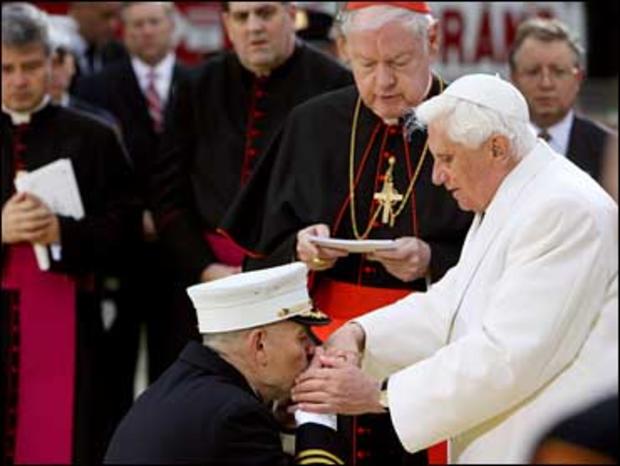
Marty Chavez has spent five months in lockdown in the mountains of West Massachusetts. However, his trademark beard has not grown to frontiersman proportions. Instead, he is clean-shaven, tanned, relaxed — albeit with more hair than usual.
This is all the more surprising as, since retiring after more than 20 years at Goldman Sachs, where he was chief financial officer, chief information officer and co-head of its hulking securities business, he has taken on four new board positions as well as a teaching job at Stanford University.
“I love working, I just don’t like being in someone else’s corporate office,” says Chavez, sporting a T-shirt from leisurewear brand Free City. “If I’m in my home office, wearing a T-shirt and shorts, it doesn’t feel like work to me. Retirement means don’t dress up and don’t go sit in someone else’s office in the big city. It doesn’t mean do nothing and sit around the house all day.”
Chavez left Goldman around a year ago after the elevation of David Solomon to chief executive, who replaced long-serving boss Lloyd Blankfein in October 2018. Chavez, who held some of the most senior roles at the US banking giant, was seen by some as a potential successor to Blankfein. Did he want the job?
“No!” he laughs in response to the question. “I would read that and think, ‘Who writes this stuff?’ Many of the jobs I had at Goldman were a surprise, they were not jobs I had targeted or coveted,” he says. “It was more, ‘Wow, the universe is a strange and wonderful place’. It is a Goldman thing where if you’re asked to do a particular job, there is a huge cultural value of just saying yes.”
Covid-19 has sped up Chavez’s decision to move with his family to the Berkshire mountains a year earlier than planned. It is also symbolic that many of his new positions, including at Paige.AI, which uses machine learning to diagnose cancer, and at digital biology firm Recursion, mean walking away from Wall Street to deal with the issue of what he describes as using a “programmable mindset” to solve healthcare problems.
This was his original plan. A PhD in medical information sciences from Stanford in 1990, Chavez says that his ambitions to use computers and maths to solve complicated problems with the human body foundered largely because the tech power simply did not exist at the time.
“Many of us were despondent, we stopped even saying artificial intelligence, because it seemed like a very distant dream,” he says. After a brief foray into Silicon Valley, Wall Street came calling as, he says, Goldman told “a headhunter to look for all the entrepreneurs in Silicon Valley with PhDs in computer science from Stanford, and ship them in”.
Chavez says that he had never really considered going into Wall Street before then, despite most of his classmates making the move aside from Conan O’Brien, who went into comedy, and Reed Hastings, who would go on to found Netflix. Chavez joined J. Aron, Goldman’s then commodities and energy brokerage unit, as a ‘strat’ on its oil trading desk in 1993.
He has said previously that he was the only openly gay man working at Goldman Sachs in New York, starting out on “the most macho of all macho corners of Wall Street” and says he developed tactics to cope.
“We were useful to one another, because I did their math,” he says of the macho traders. “Well, doing math for the popular kids was my survival strategy since I was 10-years-old, so I got to Wall Street and I thought ‘I know exactly what to do here. I’m going to do their math for them, and they’re gonna love me. And I’m going to become indispensable to them’.”
But Chavez was more than a maths nerd helping the traders make money. He was at the heart of Goldman’s early efforts to overhaul its trading business through a software platform called SecDB, a system that is widely credited with helping the bank avoid heavy losses during the 2008 financial crisis. He later oversaw its efforts to automate large parts of the trading floor that led to a complete transformation of its most profitable unit.
Chavez recounts a Goldman all-hands meeting in the early days of automation, where he outlined three potential “career strategies” at the firm: First, programme the technology as a developer or data scientist; second, work with the computers to offload some of the manual tasks associated with trading; and third, try to beat the machines, something he describes as “colossally dumb”.
Chavez says he went on to say: “If I figure out that it is your career strategy to stand in the way of automation, that is going to be a bad day for you,” he says. “I remember afterwards people said, ‘That was really dark’. And I said, ‘Well, I intended it to be helpful’.”
The tech revolution has inevitably claimed casualties. Around a third of Goldman’s staff now work in technology, while the proportion of ‘strats’ on the trading floor is around 27%, up from 18% just five years ago.
At its peak, the bank’s US equities trading unit had 600 traders, a number that shrunk to two, supported by 200 software engineers as the machines took over. Chavez insists that the net aim is not to reduce the number of people on Wall Street and says that it will actually increase, albeit with around half staff working in tech-related roles.
“I don’t think anyone really wants to be a highly paid person who listens to something on the phone, types it into a spreadsheet and then cuts and pastes that into an email,” he says. “If your ambition is to do that your whole life, I’d want you to have a bigger ambition.”
Chavez says that everyone needs to learn how to code, but this is less about being a developer and more about understanding how algorithms work. This is a drum that Chavez has been beating for decades, since his first job in 1978, when he wrote software for the US government to simulate the impact of a neutron bomb, and is unlikely to stop doing so.
“I’m even teaching my six-year-old coding, not because I want him to learn JavaScript,” he says. “I don’t care about JavaScript, but I want him to have that disciplined algorithmic approach to problem solving.”
Correction: An earlier version of this article incorrectly reported with whom Chavez had moved to the Berkshire mountains.
To contact the author of this story with feedback or news, email Paul Clarke








